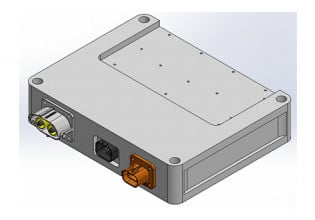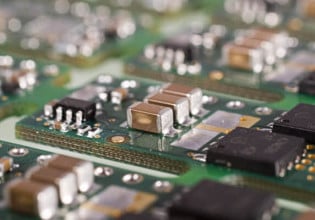US Government Taps Four Manufacturers for Wearable Battery Contract
Four battery companies landed spots in a $1.25 billion contract to build lightweight wearable batteries for the U.S. Army’s Tactical Power Generation Program.
Last week, the U.S. Department of Defense announced it selected four companies for a $1.25 billion contract to manufacture conformal wearable batteries for the Army’s Tactical Power Generation Program.
A conformal wearable battery developed by Inventus Power. Image courtesy of Inventus
According to the Army’s Communications-Electronics Research, Development and Engineering Center, the agency’s Command, Power and Integration Directorate Power Division has been building a conformal wearable battery (or CWB) to be worn on the soldiers’ body armor in the side or chest/back pouches with ballistic protective plates. The 150Wh lithium-ion rechargeable battery is lightweight, at around 2.6 lb, and aims to reduce the number of batteries a given soldier has to carry on hand, in addition to decreasing the size, weight and power required to support a tactical mission. It would also provide continuous power generation for up to 24 hours and allow dismounted operations in remote areas.
Illinois-based Inventus Power, Michigan’s Navitas Advanced Solutions Group, and New York-based Bren-Tronics and Ultralife Corporation will compete for orders in the firm-fixed-priced contract with the defense department. The project is slated to be completed around May 10, 2030.
Bren-Tronics offers rechargeable and non-rechargeable batteries, chargers and accessories suiting defense applications, along with a Hybrid Energy Advanced Trailer System designed to capture over 15 KWh of energy per day.
In its announcement, Bren-Tronics said the CWB will power the Nett Warrior (NW) suite of electronic devices, a Situational Awareness (SA) system used during combat operations. It’s integrated with Microsoft’s Integrated Visual Augmentation System (IVAS) and Next Generation Squad Weapons (NGSW).
“Soldier power demands have continually increased, requiring centralized, rugged and wearable power solutions,” stated Bren-Tronics’ Senior Vice President Doug Petito, adding that the company’s CWB enables immediate integration into the NW, IVAS and NGSW systems.
Ultralife develops batteries, power supplies and communications systems for the medical, safety/security, energy, industrial and defense markets. Its products cover military applications such as soldier-worn power sources for communications, portable and vehicle charging systems, emergency rescue power, detectors and imaging, robotics, rugged portable electronics, surveillance, AUVs and UUVs.
In its announcement, Ultralife disclosed it would receive up to $168 million during the three-year base award period, with the potential to receive up to $350 million more if the contract is extended another six years.
“Our selection to participate in what could be a military battery program extending up to nine years, demonstrates the effectiveness of our new product development strategy of designing and building technically advanced batteries in collaboration with our strategic partners,” Ultralife President and CEO Michael D. Popielec stated. “We look forward to expanding our heritage of supporting soldier modernization initiatives by providing the highest quality, mission-critical power solutions.”
Navitas Systems develops vehicle batteries and cells for a range of military applications, in addition to its commercial lines of forklift and telecom and UPS batteries and other products. In a LinkedIn post, the company said it has worked for two years to win a supplier spot with the Army.
Inventus Power designs and manufactures lithium-ion battery packs, smart chargers and docking stations, and power supplies serving military, consumer, medical, lawn and garden, industrial and commercial vehicle, data capture and other end markets.
SIGNAL Magazine recently reported that the Army deployed its current conformal wearable battery solution from Inventus over a decade ago.






